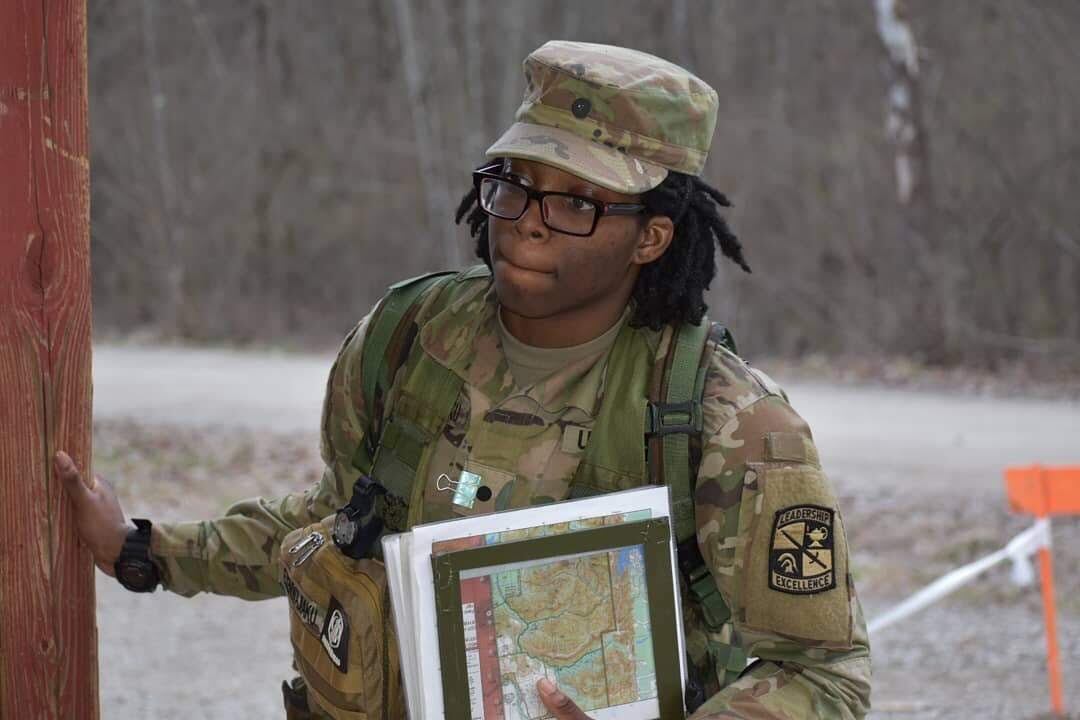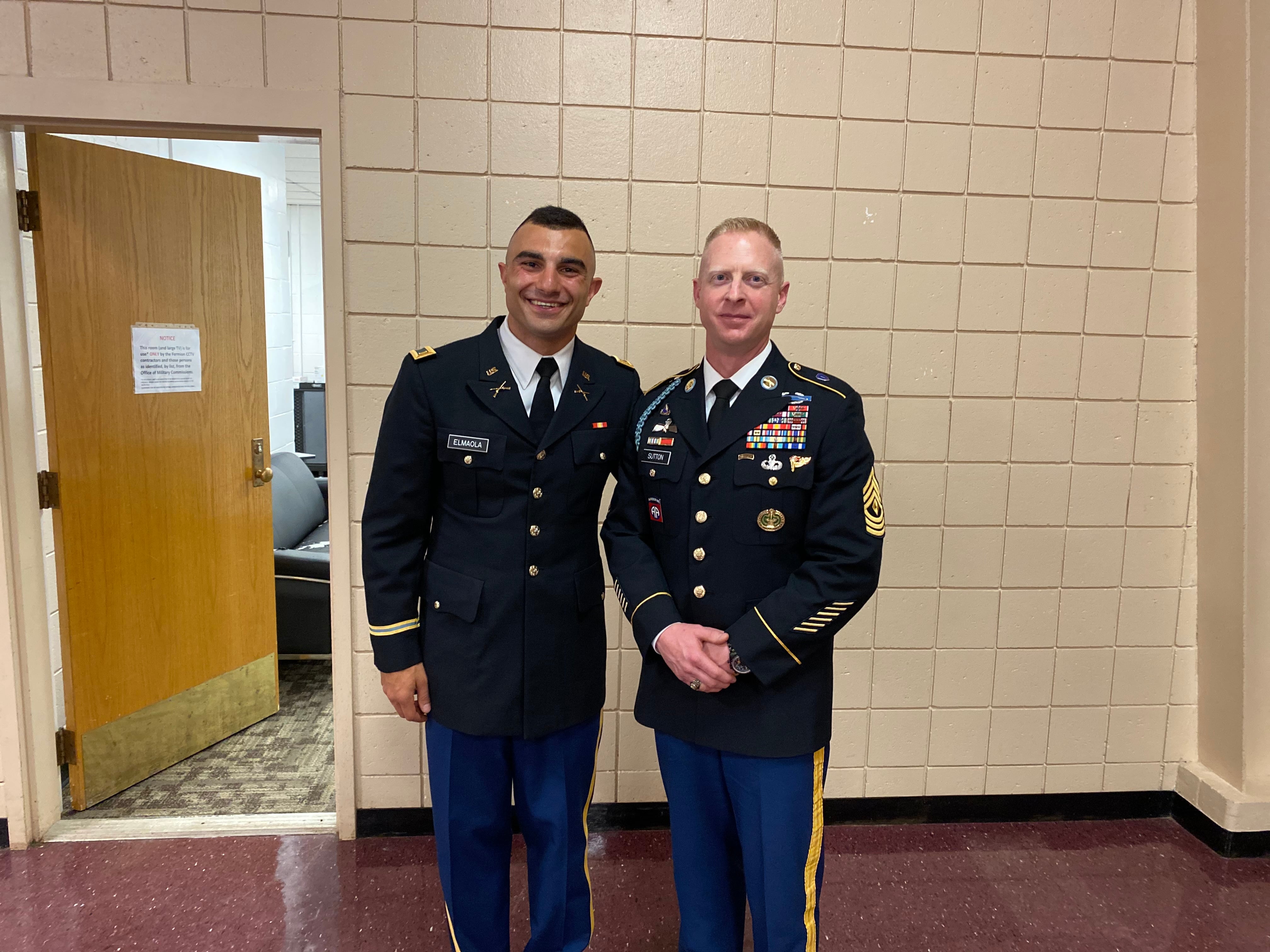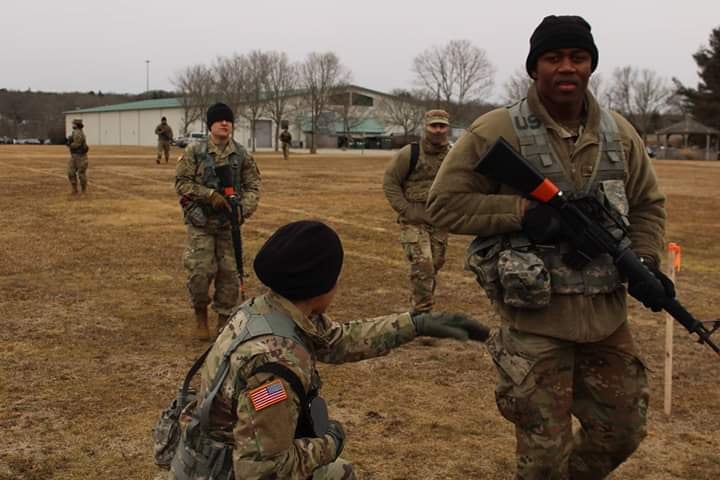Vice Chief of Staff of the Army Gen. Joseph M. Martin hosted a livestreamed commissioning ceremony from the Pentagon on Friday for the roughly 6,000 newly minted second lieutenants coming out of the service’s ROTC programs nationwide.
“They come from different backgrounds, different walks of life and perhaps their paths would otherwise not have crossed,” said Martin. “And because the Army is a reflection of society, the same issues that plague the nation, plague our ranks. We are representative of our country.”
Army Times spoke with four of those cadets this week as they prepared to head off for training in the coming months.
Former Capital University Cadet Sonia Ezenwajiaku was among the few participants in the Pentagon auditorium Friday, which was limited this year due to the coronavirus pandemic.
Ezenwajiaku, who was born in Nigeria, commissioned as a reservist into the Army Corps of Engineers. The military in general was a path in life that she and her parents were “extremely foreign to,” she said.
“I actually had no intention of joining the Army until my senior year of high school when a recruiter came in and spoke with us," Ezenwajiaku added. “Before, I really just thought it was all combat, being out there on the front line holding a gun. But once he came in and explained it to us, I realized it was so much more.”
Being in the reserves will allow Ezenwajiaku to finish a biomedical engineering degree at Case Western Reserve University, complementing her chemistry degree. ROTC, she explained, offers lessons even for those who don’t intend to join the service.

“I know a lot of people just take [ROTC] for credit, and I feel like even those people learned so much more or maybe just got such an outside experience,” said Ezenwajiaku. “I’m just really grateful for taking that route and being open to it and I feel like others should be too."
Former Clark University Cadet and Army Reservist Mohamed Elmaolo is another first-generation service member. Elmaolo was born in the United States but his family emigrated from Lebanon in 1988 when the country was in the midst of a civil war.
“My parents arrived pretty poor with no English,” said Elmaolo. “They worked day and night jobs in order to make ends meet and put their kids through school.”
Elmaolo went to Clark on a full merit scholarship and enlisted during his junior year. He’s now commissioning into the infantry. Among Elmaolo’s greatest mentors were his two senior military science instructors.
“They’re both combat leaders and excellent non-commissioned officers, so from them I learned about the importance of the infantry and how critical it is to the strategic mission,” said Elmaola, who hopes his prior enlisted service will help him lead in the future.
“One of the biggest lessons I’ll take away when I approach my first unit and my first platoon sergeant is leading with a great deal of humility and understanding that I am 1,000 percent not the expert,” Elmaola added. “[I am] getting the right people to solve the right problems.”

Many of those commissioning, like former UCLA Cadet Rachel Chamberlain, do come from military backgrounds. Her father served eight years as an artillery officer.
Growing up, he would take her to a local VA hospital to deliver cookies to veterans and listen to their stories. That played a big role in her decision to join ROTC, she said.
“It really showed what the Army was about," Chamberlain, who is commissioning into military intelligence, said. "It showed the people of the Army, how strong their values were and I wanted to be like those people.”
Chamberlain commissioned during a small, socially distanced ceremony at UCLA earlier this week. She said she’s looking forward to serving with a diverse and talented group of people. “I’ve met a lot of different types of people in the Army and I’ve very excited to serve,” she added.
Others cadets commissioning will be taking more non-traditional paths out of college.
Former ROTC Cadet Power Kanga will join the transportation corps with the Army Reserve. Kanga wants to get a few years of civilian work experience using his degree in industrial and systems engineering to kick start his career before going active duty later on.
At the age of seven, Kanga’s mother sent him from his war-torn home of Liberia to Rhode Island to live with his aunt and uncle and have a chance at a better life.

“I wasn’t dirt poor, but my family didn’t really have a lot of money,” said Kanga. “When I came here, I used my abilities to primarily focus on sports because I knew that was what would get me out of my situation and get me great opportunities to go to college for free.”
Kanga went to the University of Rhode Island on a full ride to play football. Like many collegiate athletes, he dreamed of making it to the NFL. A shoulder injury in his freshman year ended that. But Kanga found a new challenge in ROTC.
“At first, doing ROTC was really tough for me because growing up, my main focus was sports,” said Kanga. The pain of not being able to play anymore later combined with the passing of his mother in Liberia last spring. He was unable to go home at the time because he had training coming up.
“There was just so much going on,” he said, but fellow cadets provided a support network. “There’s no specific moment, there’s just many moments down the line where I was just reassured by my friends and professors, actually, that they cared ... and I’ll always remember that.”
Army ROTC produces roughly 70 percent of the officers entering the Army each year at nearly 1,000 campuses, according to the service. Army Vice Chief Martin noted Friday that the cadets commissioning this summer are entering an Army during a period of significant change.
“In times of crisis the greatest opportunities for change exists," Martin said. “Those of you who commission today will be part of that change and the Army will be better because of it.”
Kyle Rempfer was an editor and reporter who has covered combat operations, criminal cases, foreign military assistance and training accidents. Before entering journalism, Kyle served in U.S. Air Force Special Tactics and deployed in 2014 to Paktika Province, Afghanistan, and Baghdad, Iraq.





